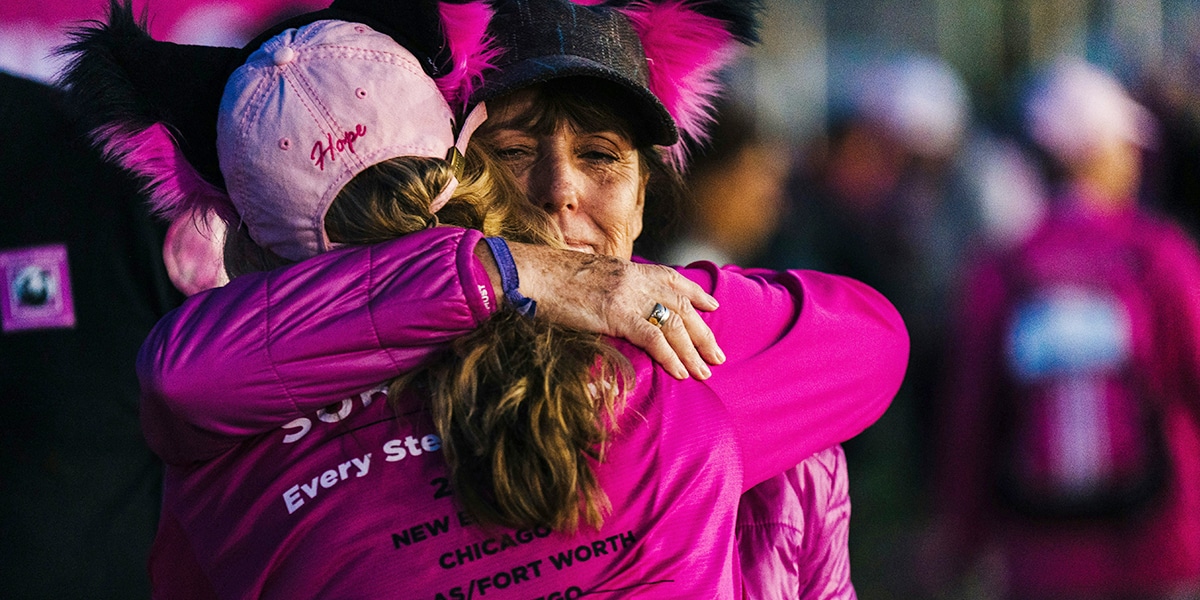Most of us have friends or family members who have left the Church. How do we respond in faith?
If you want to increase your stress and anxiety, or fear and sadness, peruse some of the research on the status of religious beliefs and behaviors in our country. According to a recent Pew Research Survey, there has been a drop in the number of people who pray daily, regularly attend services, and consider religion “very important in their lives,” with the belief in the existence of God also dropping from 71 percent in 2007 to 63 percent in 2014.
While approximately 75 percent of US adults are religiously affiliated, a growing minority do not belong to any organized faith, identifying as atheists or agnostics, or describing their religion as “nothing in particular.” And as the latter group, known as nones, increases in size, their level of religious observance is declining, which, according to the study, “is tugging down the nation’s overall rates of religious belief and practice.”
She continues: “Since college, four of my five kids went from being religious to nonreligious, and their children have no formal religion or practice. It seems that the more educated they get, the less religious they are. Only one and her spouse and children regularly go to church. The four others only go to church for weddings and funerals, and haven’t even had their children baptized. Their mantra is that they can be spiritual without religion. I just think my kids are taking the wrong path and cheating their kids. I wonder what’s going to happen to our Church and religion when our grandchildren are adults. What will they give to their children in regards to religion and God? I don’t know what to do.”
What can we do to get our religion and the Catholic Church to resonate in our families and friends?
Although Christ always made an impact, he never changed anyone without their cooperation or dialogue. While we can’t change anyone, like Christ, we can be merciful and patiently available.
We read the negative statistics of decreasing Mass attendance, reception of sacraments, and the number of priests. We know that special programs and communal events often draw relatively few people. Furthermore, we get discouraged when we see that the majority of supporters are senior citizens, with the young and educated in the minority. Asking elderly people for their time, talent, and treasure evokes dispiriting weariness. Church and school closings fuel the dismal atmosphere, while political setbacks, periodic scandals, and too many leaders who fail to walk their talk add to our pervasive and unspoken fear.
Some people think that part of our crisis is due to our theologies, pastoral letters, and homilies being too abstract and not very relevant or helpful to most people. They want their leaders to show how religion helps them to manage more effectively and to live more meaningfully. Others argue that we subscribe too much to business and social media models rather than to spiritual ones, or point to Church scandals, inept leadership, and cultural or political secularization. They feel that the Church leaders still whitewash their dark side, choosing expediency over mercy.
Connecting with the ‘Lost Sheep’
With utmost respect for the people who are doing so much in and for the Church, I would like to offer some ideas that challenge and hopefully help some of our existing approaches. My perspective comes from my experience as a clinical psychologist and belief that spiritual or God stuff is the paramount dynamic of a healthy, happy, and holy life. So, let’s start.
I think that we may make a mistake when our focus is on bringing them into the fold. With good intentions, we can risk setting up an us-them dichotomy that turns people off or pushes them away, the opposite of what we want. With benevolent arrogance and stubbornness, we may believe that we have the truth, and they don’t. It may behoove us not to be so sure.

Before getting them to come to our welcome centers, programs, or liturgies, it may often be better first to go to their fold. Instead of luring the lost sheep, we can search for them. Maybe we can discover why they avoid us or refuse our spiritual nourishment.
I suggest we first join and simply be with them, manifesting God without saying anything about religion or God. We can, however, strive to see, hear, and respond to God’s truth and love that abides within our nonchurched, nonreligious, and religiously inactive.
In short, we initially visit them, keeping our mouths shut and our ears and hearts open. In love, we may come closer to becoming one and more likely to dialogue.
Preparing for Hard Questions
As that dialogue begins, we need to be ready for the questions that may arise—asked not to challenge us but for their own enlightenment. The following are questions we might find necessary to answer: Why can’t I live a good life without religion and a church? How is religion worth my time, energy, money, and commitment? Can you show me how Catholicism or any religion and its God can help me and others live better lives?
How do we respond to our inactive and unchurched brothers and sisters (the lost sheep) who criticize our messy, sinful, and arrogant Church? How do we respond to their questions about birth control, homosexuality, male dominance, double standards of justice, celibacy, sex scandals, etc.?
How do we dialogue with people who think that religion is an illusion, the opium of the masses, or an unnecessary or irrational belief to ameliorate our existential anxiety of death? Finally, what can we learn from the nontheistic philosophers, psychologists, scientists, popular speakers, and best-selling authors of books on atheism and agnosticism?
Before speaking, we must be aware of and avoid acting on ambivalent thoughts and feelings that accuse nones of being arrogant in their self-sufficiency, foolish in not needing religion and its communal worship, and naïve in acting as if they are the center of the universe. By suppressing our own demons, we are freer from pulling rank, criticizing, correcting, blaming, or shaming. Instead of fighting or fleeing, we are freer to listen and learn.
Standing together on common ground, we are freer to explore our differences.
Remember, although Christ always made an impact, he never changed anyone without their cooperation or dialogue. While we can’t change anyone, like Christ, we can be merciful and patiently available. While we can and should offer our points of view firmly and kindly, like Christ, it’s not about being right. It’s about manifesting God.
When someone asks me why and how I, as a health scientist and provider, can believe in God and support a Church and its religion, I might say, “It’s not always easy.” But I add that, after considerable searching and study, as well as uncertain journeys, I have found and am finding that God, religion, and its activities are the best imperfect systems that help me to be and do better. For me, faith (God) takes the lead in its dance with reason (science).
So, are we losing our religion? Looks like it. Will matters get worse before they get better? Probably. Will we suffer in order to progress? Yes. Will we revive and improve our religion? Eventually. Will nones become more formally religious? Some. Will the inactive religious become active? Potentially. Will we be better off? Hopefully.
Regardless of what happens, let us dance with our nones, inactive Church members, and actively religious people. Let us listen and move to our individual and common music. However we believe, our most important way is to keep on dancing to God’s silent music. Then maybe someday, someone (your spouse, child, grandchild, sibling, friend, or a stranger) might pause and look at you dancing. They may wonder how you came to this divine dance. Though reluctant, they may want to learn how to dance as you do. God only knows who may give it a try.
Sidebar: Bringing God to the Nones
Here are seven suggestions to bring nones, inactive Church members, or anyone to God, religion, and Church.
- Strive to connect in love with one another. Go to their places to walk and talk, laugh and cry, party and mourn, live and die.
- Accept (neither condone nor condemn) and understand their vision. Affirm what makes sense to you, and honestly question and learn from someone with whom you disagree.
- Encounter and dialogue with nones and inactive Church members with a sincere attitude of learning what they can teach you.
- Manifest and offer examples of how God, religion, and Church make a significant difference in your everyday living.
- If some think that God is unnecessary, ask them what they mean by God. You may find that you, too, do not subscribe to the version of God they describe. If they want to know, share your notions and experiences of God.
- After educating without preaching, explain how God, prayer, reading, communal worship, and religious practices help you to be a better spouse, parent, adult child, sibling, friend, worker, or simply a better human being.
- No matter what, be mindful of and present to God in yourself and in others. Be a member of Christ’s body, the living Church.








